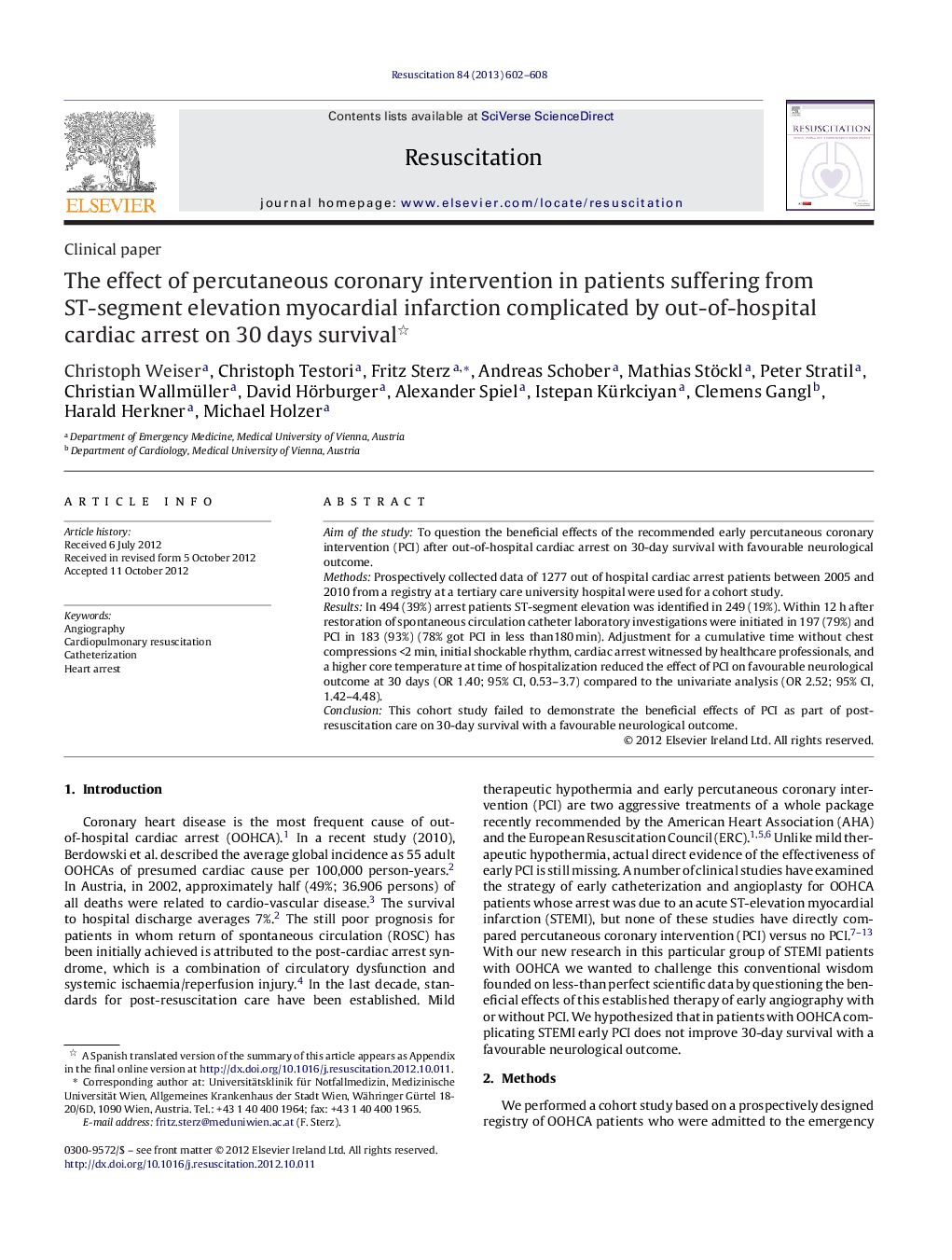| Article ID | Journal | Published Year | Pages | File Type |
|---|---|---|---|---|
| 5998755 | Resuscitation | 2013 | 7 Pages |
Aim of the studyTo question the beneficial effects of the recommended early percutaneous coronary intervention (PCI) after out-of-hospital cardiac arrest on 30-day survival with favourable neurological outcome.MethodsProspectively collected data of 1277 out of hospital cardiac arrest patients between 2005 and 2010 from a registry at a tertiary care university hospital were used for a cohort study.ResultsIn 494 (39%) arrest patients ST-segment elevation was identified in 249 (19%). Within 12Â h after restoration of spontaneous circulation catheter laboratory investigations were initiated in 197 (79%) and PCI in 183 (93%) (78% got PCI in less than180Â min). Adjustment for a cumulative time without chest compressions <2Â min, initial shockable rhythm, cardiac arrest witnessed by healthcare professionals, and a higher core temperature at time of hospitalization reduced the effect of PCI on favourable neurological outcome at 30 days (OR 1.40; 95% CI, 0.53-3.7) compared to the univariate analysis (OR 2.52; 95% CI, 1.42-4.48).ConclusionThis cohort study failed to demonstrate the beneficial effects of PCI as part of post-resuscitation care on 30-day survival with a favourable neurological outcome.
